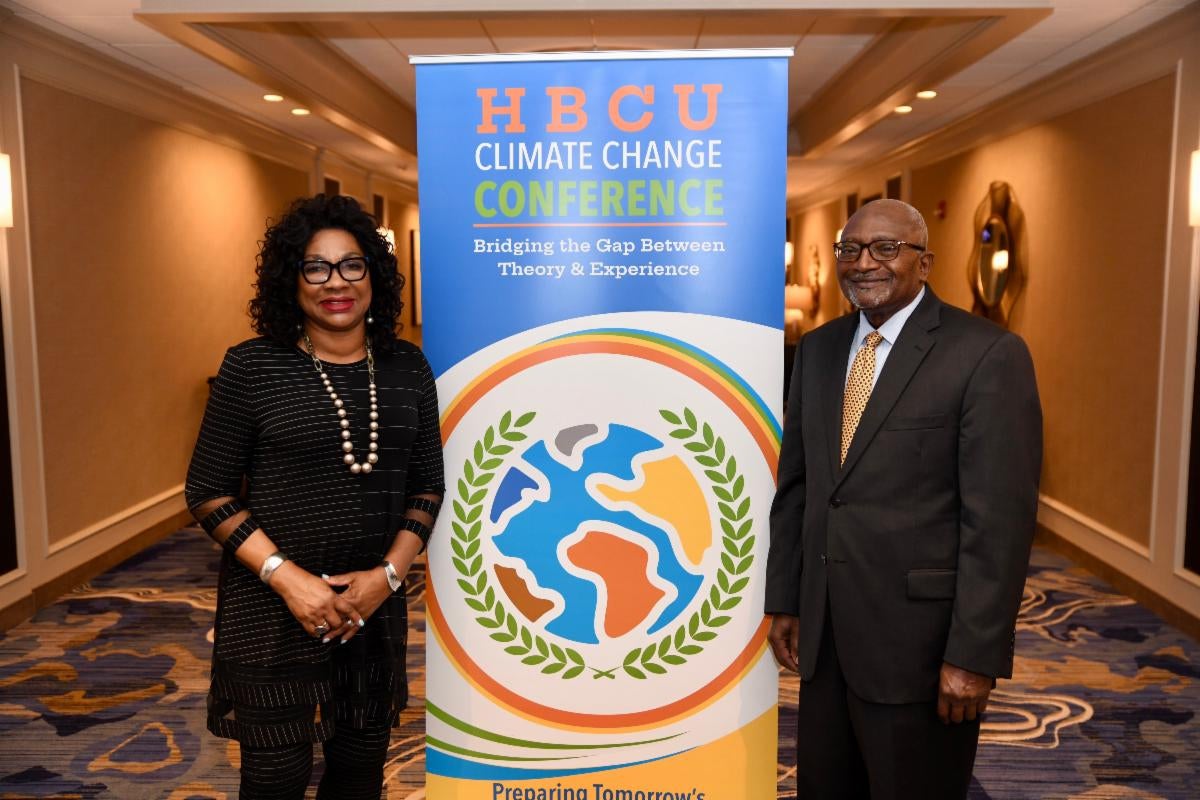
After being postponed for the past two years due to the COVID-19 pandemic, the Eight Annual HBCU Climate Change Conference, finally convened in person last week, hosted by the Deep South Center for Environmental Justice along with Texas Southern University. The attendees’ discussion focused on several themes, such as air pollution tracking in Houston and Louisiana parishes, impacts on environmental health upon communities of color, and flood protection in Mississippi and Louisiana port cities.
“The purpose of the conference is to bring together HBCU faculty and students, researchers, climate professionals and environmental justice and coastal community residents impacted by toxic facilities and severe weather events related to climate change in order to bridge the gap between theory and the experiential realities of climate change. The conference will address issues related to climate justice, adaptation, community resilience, global climate issues, and other major climate change topics (i.e. transportation, energy sources, carbon emissions, green jobs/green economy, just transition, and community economic development),” according to the Deep South Center for Environmental Justice.
Since the last conference in 2019, there have been many changes on the climate change and environmental justice front, most notably, the presidential transference from Trump to Biden, and the ensuing re-dedication to preserving our planet. The Biden administration created the nascent White House Environmental Justice Advisory Council in addition to an influx of private philanthropy in this space, including the Bezos Earth Fund.
Last year, Jennifer Granholm, the U.S. Secretary of Energy spoke about how significant it was for HBCUs to be an active participant in the conversation around climate change, stating, “My first venture out in this COVID environment was to Howard University…it was to announce a $17 million opportunity at DOE [Department of Energy] offering to support college internships and research projects and opportunities and to bolster investment in underrepresented use in minority-serving institutions…If you don’t have diverse researchers at the table, your research product, whatever it is, is going to not be as effective…So, for example, when we have all this face recognition software out there, all this artificial intelligence, well, they’re the way MIS identifies African-American faces, especially in law enforcement. If you have more people of color who are on the teams doing the development of that software and that technology, then you will not have that problem…We have to have diverse participation in the design of these products and the research of them…And that’s why we need to increase the diversity in our laboratories, but of our stem, our science, technology, engineering, and math workforce.”
Speaking at this year’s conference, Beverly Wright, a co-founder of the conference and also a member of the White House Environmental Justice Advisory Council said, “The movement has changed…It’s resourced for the first time at a level higher than it’s ever been resourced before…We find ourselves fighting old fights, fights (we thought) we won. And now we’re fighting them all over again. And that’s why we need you young people. This is your fight moving forward…We live in a state that for years abdicated its environmental protection obligations.”
Attendees indicated the positive effects of the conference—one said, “I’m learning that all of the impacts are mainly on (other) minority communities…And we’re being left out form getting the help that we need to alleviate these problems.” Another indicated they were leaving inspired, “What I’ve really gleaned from this conference is the student activism and seeing what’s new that’s coming in terms of taking responsibility…Because we’ve seen that this work takes decades, it takes years, and we don’t have years.”